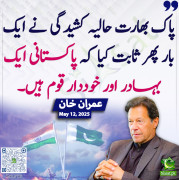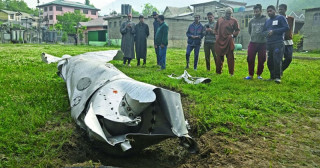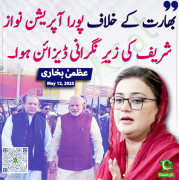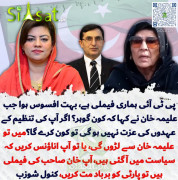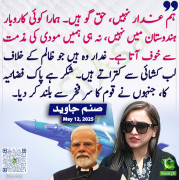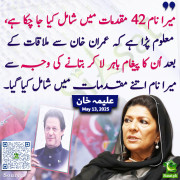Sikandar.dawood
MPA (400+ posts)
10 Corporations Control Almost Everything You Buy — This Chart Shows How

Ten mega corporations control the output of almost everything you buy; from household products to pet food to jeans.
According to this chart via Reddit, called "The Illusion of Choice," these corporations create a chain that begins at one of 10 super companies. You've heard of the biggest names, but it's amazing to see what these giants own.
Here are just a few examples: Yum Brands owns KFC and Taco Bell. The company was a spin-off of Pepsi. All Yum Brands restaurants sell only Pepsi products because of a lifetime deal with the soda-maker.
$84 billion-company Proctor & Gamble — the largest advertiser in the U.S. — owns companies that produce everything from medicine to toothpaste to high-end fashion. P&G reportedly serves a whopping 4.8 billion people around the world with their products.
Nestle — famous for chocolate, but which is the biggest food company in the world — owns shampoo company L'Oreal, baby food giant Gerber, clothing brand Diesel, and pet food makers Purina and Friskies.
Unilever, of soap fame, produces everything from Q-tips to Skippy peanut butter.
And it's not just the products you buy and consume, either. In recent decades, the very news and information that you get has bundled together: 90% of the media is now controlled by just six companies, down from 50 in 1983, according to a Frugal Dad infographic from last year.

It gets even more macro, too: 37 banks have merged to become just four — JPMorgan Chase, Bank of America, Wells Fargo and CitiGroup in a little over two decades, according to this Federal Reserve map.
The nation's 10 largest financial institutions hold 54% of our total financial assets; in 1990, they held 20%. As MotherJones reports, the number of banks has dropped from more than 12,500 to about 8,000.

The numbers are stark, and the charts visualize the mind-bending reality. This is the world we live in.
http://www.policymic.com/articles/7...lmost-everything-you-buy-this-chart-shows-how

Ten mega corporations control the output of almost everything you buy; from household products to pet food to jeans.
According to this chart via Reddit, called "The Illusion of Choice," these corporations create a chain that begins at one of 10 super companies. You've heard of the biggest names, but it's amazing to see what these giants own.
Here are just a few examples: Yum Brands owns KFC and Taco Bell. The company was a spin-off of Pepsi. All Yum Brands restaurants sell only Pepsi products because of a lifetime deal with the soda-maker.
$84 billion-company Proctor & Gamble — the largest advertiser in the U.S. — owns companies that produce everything from medicine to toothpaste to high-end fashion. P&G reportedly serves a whopping 4.8 billion people around the world with their products.
Nestle — famous for chocolate, but which is the biggest food company in the world — owns shampoo company L'Oreal, baby food giant Gerber, clothing brand Diesel, and pet food makers Purina and Friskies.
Unilever, of soap fame, produces everything from Q-tips to Skippy peanut butter.
And it's not just the products you buy and consume, either. In recent decades, the very news and information that you get has bundled together: 90% of the media is now controlled by just six companies, down from 50 in 1983, according to a Frugal Dad infographic from last year.

It gets even more macro, too: 37 banks have merged to become just four — JPMorgan Chase, Bank of America, Wells Fargo and CitiGroup in a little over two decades, according to this Federal Reserve map.
The nation's 10 largest financial institutions hold 54% of our total financial assets; in 1990, they held 20%. As MotherJones reports, the number of banks has dropped from more than 12,500 to about 8,000.

The numbers are stark, and the charts visualize the mind-bending reality. This is the world we live in.
http://www.policymic.com/articles/7...lmost-everything-you-buy-this-chart-shows-how
Last edited:





